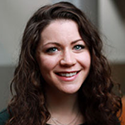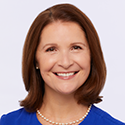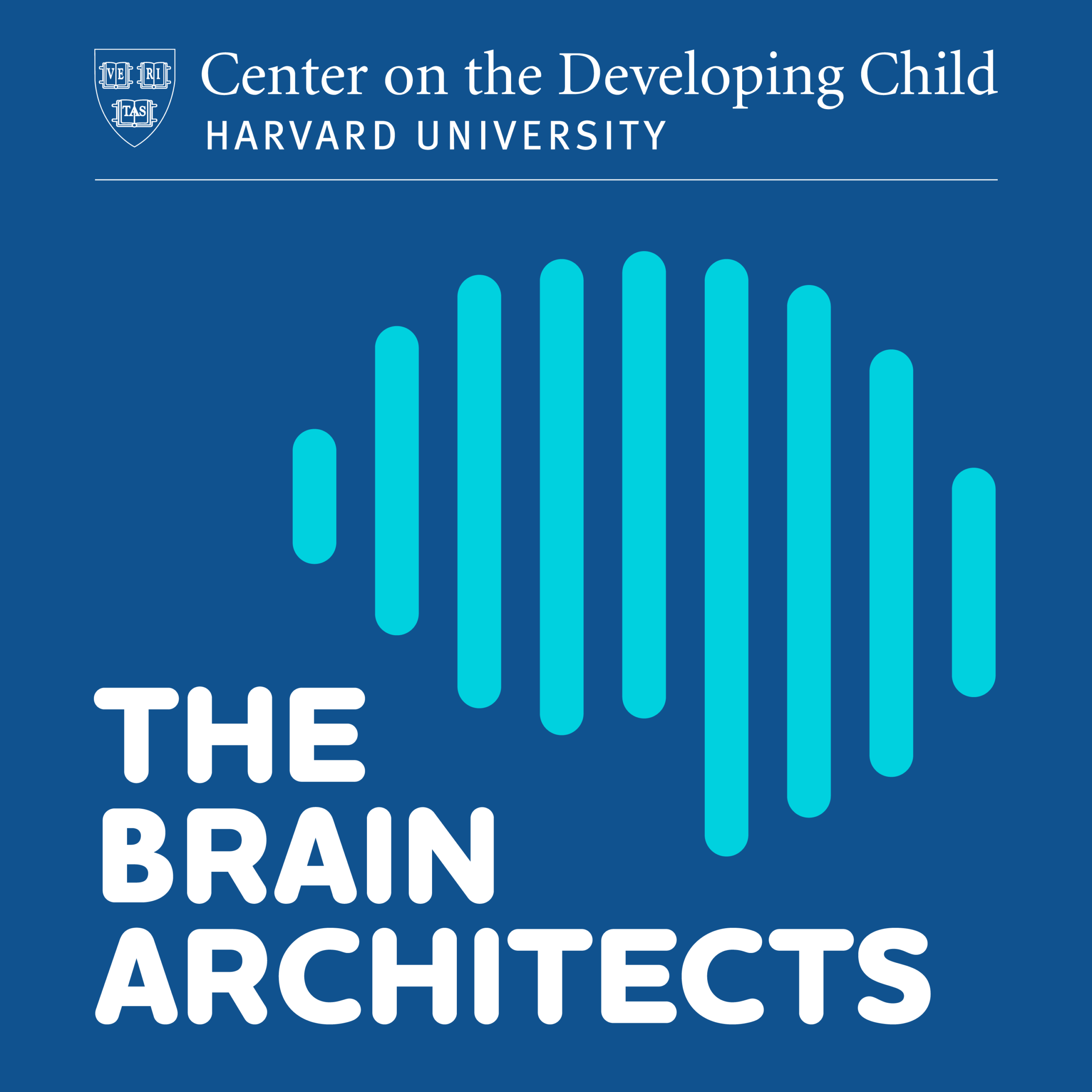COVID-19 Special Edition: Self-Care Isn't Selfish
Description
In the midst of a global pandemic, pediatricians are serving a unique role. While the coronavirus is generally showing milder effects on babies and children than on adults, there are still health concerns and considerations for infants in need of scheduled vaccinations, and kids who are home all day with parents who may be facing stressful situations.
In the second episode of our special COVID-19 series of The Brain Architects, host Sally Pfitzer speaks with Dr. Rahil Briggs, National Director of ZERO TO THREE’s HealthySteps program, to discuss how pediatricians are serving their patients during the pandemic, including using telehealth; why caregiver health is child health; and what she hopes the healthcare system can learn as a result of the pandemic.
Upcoming episodes will focus on racial disparities in the effects of the virus, and domestic violence. Subscribe below via your podcast platform of choice to receive all new episodes as soon as they’re released.
Speakers
<figure id="attachment_4958" aria-describedby="caption-attachment-4958" style="width: 125px" class="wp-caption alignnone">
 <figcaption id="caption-attachment-4958" class="wp-caption-text">Sally Pfitzer, Podcast Host</figcaption></figure>
<figcaption id="caption-attachment-4958" class="wp-caption-text">Sally Pfitzer, Podcast Host</figcaption></figure><figure id="attachment_4959" aria-describedby="caption-attachment-4959" style="width: 125px" class="wp-caption alignnone">
 <figcaption id="caption-attachment-4959" class="wp-caption-text">Dr. Rahil Briggs, National Director of ZERO TO THREE’s HealthySteps Program</figcaption></figure>
<figcaption id="caption-attachment-4959" class="wp-caption-text">Dr. Rahil Briggs, National Director of ZERO TO THREE’s HealthySteps Program</figcaption></figure>Additional Resources
- Erikson Institute’s Fussy Baby Network: free phone consultations
- Healthy Steps: Caring for Yourself and Young Children During the Coronavirus (COVID-19) Crisis
- ZERO to THREE: Tips for Families: Coronavirus
Transcript
Sally: Welcome to The Brain Architects, a podcast from the Center on the Developing Child at Harvard University. I’m your host, Sally Pfitzer. Since our last podcast series was released, things have changed drastically as a result of the Coronavirus pandemic. During this unprecedented time, we’d like to share resources and provide guidance that you may find helpful. So, we are creating a series of podcast episodes that address COVID-19 and child development. This episode is the second in our series, and our guest today is Dr. Rahil Briggs, the National Director of ZERO TO THREE’s HealthySteps Program. Good morning, Rahil.
Dr. Briggs: Good morning, Sally.
Sally: And just so our listeners know, we’re recording this podcast today on a video call, so the sound quality may be different from what you’re used to hearing when we typically record this podcast in the studio. Rahil, what are you starting to see out in the field with pediatric practices effected by this virus, particularly in the HealthySteps locations, and how are the pediatricians starting to respond to the Coronavirus situation?
Dr. Briggs: Sure, thanks Sally. It’s an excellent question and honestly, depending on when listeners are catching this it may have already changed by now. The American Academy of Pediatrics is really our guide star for figuring out what’s going on and what they’re recommending, but a couple of facts on the ground really remain the same. That pediatric primary care is the main system we have for reaching young children. In a normal time, whatever that was and may be in the future, pediatric primary care reaches nearly all young children in our country. Right now, the American Academy of Pediatrics in recognition of the importance of vaccinations, and in recognition of the importance of really high quality newborn pediatric care continues to recommend actually, that families bring newborns, and bring infants and toddlers who need vaccinations into the primary care practice. So, that is pretty extraordinary and speaks to the importance of those services even with the Coronavirus swirling around. As you know, there are about 12-13 well child visits in those first three years. 7 of them occur in the first year of life, and a big chunk occur in that newborn period where they are checking everything from the bilirubin levels to maybe redoing the newborn blood stick to the weight gain and all these really critical pieces. So to your question – what are we hearing now and what are we hearing from our HealthySteps specialists who work side by side alongside the pediatricians in these practices? We’re hearing that babies still need vaccinations, and parents are more stressed than ever. That really needs attention. All of this discussion about how children are saved by the worst impacts of the medical parts of the Coronavirus, they are at home often with parents who are incredibly stressed and really looking for new approaches and ways to just frankly get through the day. So that is where our HealthySteps specialists are really coming in handy. I’ll leave you with one particular point that has really stuck with me. We had one of our HealthySteps practices in Colorado say that they were going to move to drive through vaccination services, which sort of boggles the mind, but I suppose that’s the world we are living in right now. And as they grappled with that and went back and forth with whether or not that was the right thing to do, they decided they weren’t going to do drive through vaccination services. One of their driving pieces was knowing how important it would be for the family to still touch base with the HealthySteps specialist. They’re hearing that families are running out of diapers, families are struggling to get formula, families are struggling to get needed medications for children with special healthcare needs. The HealthySteps specialists are doing so much of that care coordination and that systems navigation because as we know this is disproportionately affecting those who are impacted by poverty.
Sally: Would you mind giving us a really quick summary of what HealthySteps is for the listeners who may not know about the program?
Dr. Briggs: Sure. HealthySteps is a team-based, evidence-based primary care program where we add a new team member to the primary care network, which is a HealthySteps specialist who is an expert in child development, focusing a lot on parent-child relationships, focused on infants and toddlers; babies, toddlers, birth to three. We are an evidence-based program and have a three-tiered system of intervention with a universal level of services that include needed screenings for family concerns and child concerns and follow up on those screenings. And then a tiered level of intervention based on need for families with young children.
Sally: That’s really interesting, and you’re actually teeing us up for our next question. How are pediatricians helping families manage stress with all that’s happening right now, and what advice would you be thinking about giving to those families that are dealing with the highest adversity and stress?
Dr. Briggs: It’s a great question, Sally. I think a couple of things remain true, even though we are living through pretty extraordinary times. We know that there are two main ingredients for happy families with healthy children, and those continue to be safe, stable and nurturing relationships and a sense of routine and predictability to some extent. So obviously right now people are very stressed, and families are worried about lost income or even about not having enough groceries on the table. We also know from some of the great work that’s been done that babies pick up on that stress. They’re like recording devices that are always on. We don’t get to choose whether they record just the good or some of the bad, it is always on. So, what do you do and what can pediatricians do to help families during this time? I’d say three important things. One, and again this remains true no matter what time we are in – take care of yourself so that you can take care of your children. It’s about going easy on ourselves. Recognizing that nobody can overnight, turn into a perfect stay at home employee, pre-school teacher, care coordinator, systems navigator and parent when you’re not sleeping because you’re worried about trying to get food on the table. It’s about asking for help and organizations are scrambling to try to figure out the best ways to help families – moving to telehealth and moving to much more nimble service delivery options. Two, some semblance of a daily schedule. I think again this is a moment to go easy on yourself. It doesn’t have to be color coded and beautiful and every 5 minutes mapped out, but some daily sc





